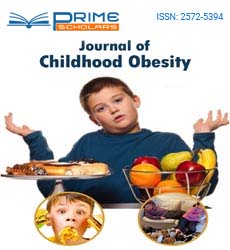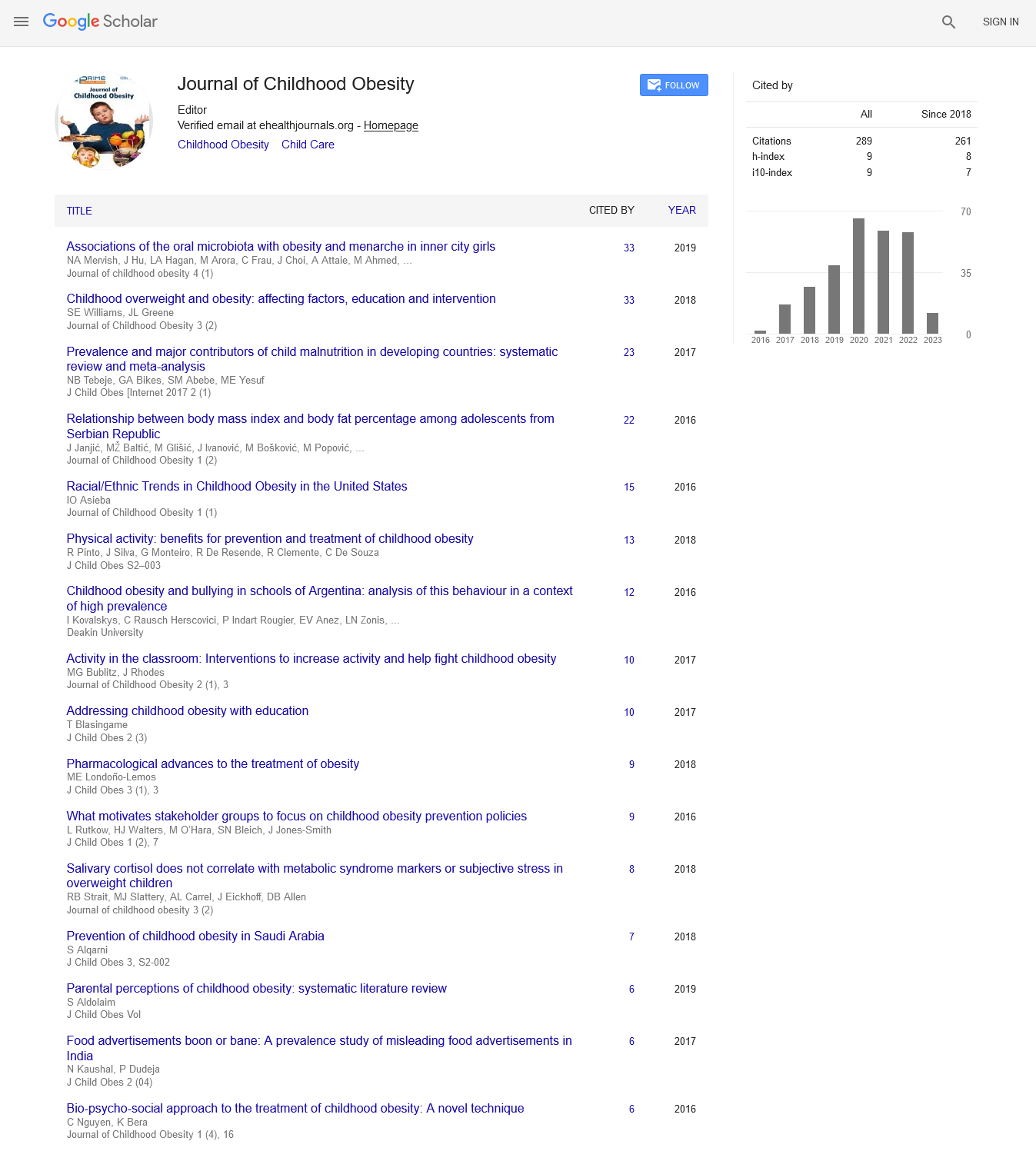Commentary - (2023) Volume 8, Issue 6
The Weighty Connection Childhood Obesity and its Heart Health Implications
Jack Hernandez*
Department of Health Sciences, Tulane University, United States of America
*Correspondence:
Jack Hernandez,
Department of Health Sciences, Tulane University,
United States of America,
Email:
Received: 29-Nov-2023, Manuscript No. ipjco-24-18883;
Editor assigned: 01-Dec-2023, Pre QC No. ipjco-24-18883(PQ);
Reviewed: 15-Dec-2023, QC No. ipjco-24-18883;
Revised: 20-Dec-2023, Manuscript No. ipjco-24-18883 (R);
Published:
27-Dec-2023, DOI: 10.21767/2572-5394-23.8.61
Description
Childhood obesity, a pervasive global concern, is not merely
a matter of aesthetics; it has far-reaching health implications,
with one of the most serious being its association with heart
diseases. The alarming rise in obesity among children is a
cause for concern, as it significantly increases the risk of
cardiovascular issues later in life. In this article, we delve into
the intricate link between childhood obesity and heart diseases,
shedding light on the importance of early intervention and
preventative measures. Over the past few decades, childhood
obesity has reached epidemic proportions, affecting millions
of children worldwide. The World Health Organization (WHO)
reports that the number of overweight or obese children under
the age of five has risen dramatically, indicating a need for
urgent attention to curb this growing health crisis. Childhood
obesity sets the stage for a myriad of health problems, with
cardiovascular diseases at the forefront. Excess body weight,
especially when concentrated around the abdominal area,
contributes to the development of risk factors such as high
blood pressure, elevated cholesterol levels, and insulin
resistance. Over time, these factors can lead to the early onset
of heart diseases, including coronary artery disease and heart
failure. Obese children are more likely to develop hypertension,
a condition characterized by elevated blood pressure. The
extra weight forces the heart to work harder to pump blood,
leading to increased strain on the arteries. Over time, this can
contribute to the development of atherosclerosis hardening
of the arteries, increasing the risk of heart attacks and strokes
later in life. Childhood obesity often leads to an unhealthy
lipid profile, characterized by elevated levels of triglycerides
and low-density lipoprotein (LDL or “bad” cholesterol) and
decreased levels of high-density lipoprotein laques in the
arteries, impeding blood flow and increasing the likelihood
of heart-related events. Obesity-induced insulin resistance, a
condition where the body’s cells do not respond effectively
to insulin, can lead to the development of type 2 diabetes.
Children with diabetes are at a higher risk of cardiovascular
diseases, as the combination of insulin resistance and elevated
blood sugar levels contributes to inflammation and damage
to blood vessels, increasing the likelihood of heart-related
complications. Addressing childhood obesity is a crucial step
in preventing heart diseases later in life. Early intervention is a
key to breaking the cycle of unhealthy habits and reducing the
impact of obesity-related risk factors. Here are some strategies
for tackling childhood obesity and promoting heart health
encouraging a balanced diet and regular physical activity is
fundamental. Families, schools, and communities should work
together to create environments that support healthy choices,
providing access to nutritious foods and opportunities for
exercise. Empowering parents and caregivers with knowledge
about the risks of childhood obesity and the importance of a
heart-healthy lifestyle is essential. This includes guidance on
nutrition, the benefits of physical activity, and the potential
consequences of unhealthy habits. Routine health check-ups
for children should include screenings for obesity-related
risk factors, such as blood pressure, cholesterol levels, and
blood glucose levels. Early identification of these risk factors
allows for timely intervention and management. Schools
play a crucial role in shaping a child’s habits. Implementing
programs that promote physical education, healthy eating, and
overall wellness can positively influence children’s behaviors
and contribute to a heart-healthy lifestyle. Childhood obesity
is a multifaceted problem with serious health implications,
particularly concerning heart diseases.
Acknowledgement
None.
Conflict Of Interest
The author declares there is no conflict of interest in publishing
this article.
Citation: Hernandez J (2023) The Weighty Connection Childhood Obesity and its Heart Health Implications. J Child Obesity. 8:61.
Copyright: © 2023 Hernandez J. This is an open-access article distributed under the terms of the Creative Commons Attribution License, which permits unrestricted use, distribution, and reproduction in any medium, provided the original author and source are credited.

